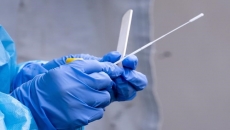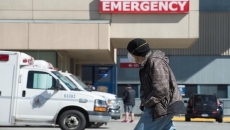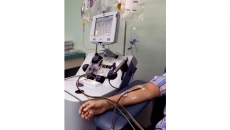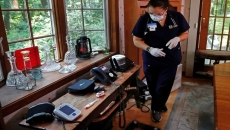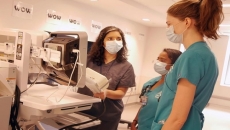New York/New Delhi, Nov 8 (IANS) A team of US researchers has identified how a specific protein in coronavirus damages heart tissue and they used a drug, currently in emergency use for the treatment of Covid in India, to reverse the toxic effects of that protein on the heart.
Dr Reddy's Laboratories last year announced the commercial launch of 2-deoxy-D-glucose (2DG) for treatment of Covid-19. 2DG was developed by the Institute of Nuclear Medicine & Allied Sciences (INMAS), a laboratory of the Defence Research and Development Organisation (DRDO), in collaboration with Dr Reddy's Laboratories (DRL), Hyderabad.
Now, researchers at the University of Maryland School of Medicine's (UMSOM) Center for Precision Disease have used 2DG to reverse the toxic effects of that protein on the heart.
The researchers said that fortunately, 2DG is inexpensive and is used regularly in laboratory research and is being used in clinical trials in India. The drug has not yet been approved by the US Food and Drug Administration (FDA) to treat the disease.
"Our research shows that individual SARS-CoV-2 proteins can each do major damage to specific tissues in the body - similar to what has been found for other viruses like HIV and Zika," said senior author Zhe Han, Professor of Medicine and Director of the Center for Precision Disease Modelling at UMSOM.
"By identifying these processes of injury in each tissue, we can test drugs to see whether any can reverse this damage; those drugs that show promise can then be further tested in clinical research studies," Han added.
Their findings, based on research with fruit flies and mouse heart cells, were published in Communications Biology, a Nature journal.
Last year, Dr Han and his research team identified the most toxic SARS-CoV-2 proteins in studies using fruit flies and human cells.
They found a promising drug, selinexor, which reduced the toxicity of one of these proteins, but not the other one, known as Nsp6.
The team blocked sugar metabolism in fruit flies and mouse heart cells using the drug 2-DG. They found that the drug reduced the heart and mitochondria damage caused by the Nsp6 viral protein.
"We predict this drug that changes the metabolism in the heart back to what it was before infection would be bad for the virus, by both cutting off its energy supply and eliminating the pieces it needs to replicate," said Han.
Manufactured by Dr Reddy's, the drug has a purity of 99.5 per cent and is being sold commercially under the brand name 2DG.
It can be administered only upon prescription and under the supervision of a qualified physician to hospitalised moderate to severe Covid-19 patients as an adjunct therapy to the existing standard of care.
The emergency use approval for anti Covid-19 therapeutic application of the drug was granted on May 1, 2021.
Photo courtesy of IStock.

